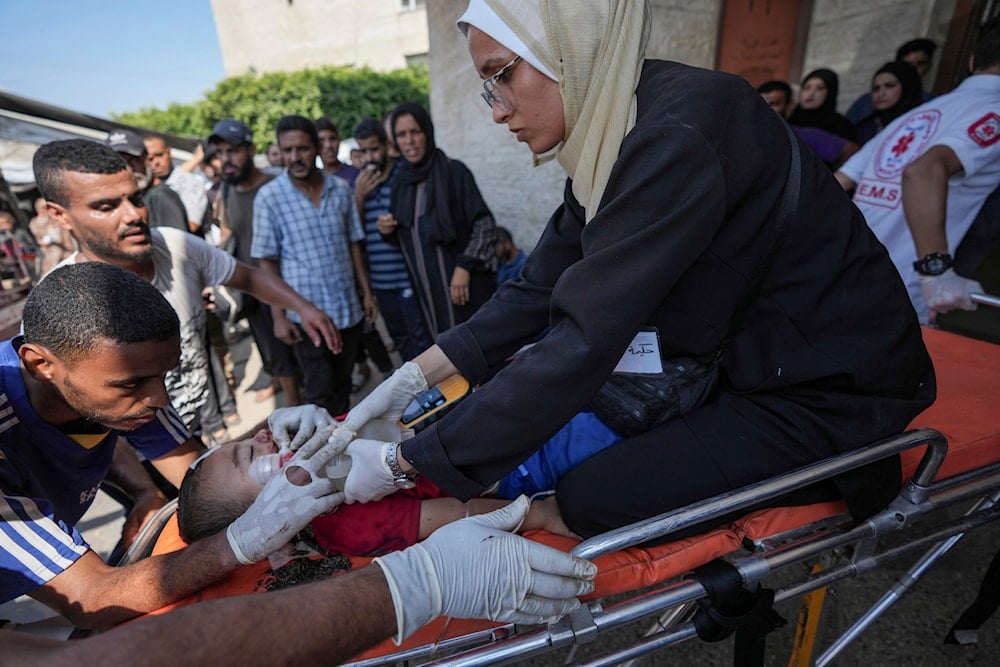Gaza doctors left in the dark as fuel shortages further hit hospitals
Only a few hospitals remain operational 10 months into the war on Gaza as fuel shortages cripple the health system in the Strip.
-

A Palestinian medic helps a child wounded in the Israeli bombardment of the Gaza Strip in a hospital in Deir Al-Balah, on July 27, 2024. (AP)
In the shadowy hallways of Kamal Adwan Hospital in northern Gaza, doctors now rely on mobile phone flashlights as much as they do stethoscopes while making their rounds, with generators no longer operational. After more than 10 months of war, severe fuel shortages have crippled the besieged territory, leaving the few remaining hospitals with even fewer resources to continue their services.
Ayman Zaqout struggled to reach Kamal Adwan Hospital in Beit Lahia due to ongoing Israeli strikes and widespread evacuation orders. Upon arrival, he found that much of his treatment would take place in near darkness.
"There was no electricity and I don't know how they will be able to treat me in these circumstances," Zaqout, wincing from pain due to renal colic, described the hospital's dire conditions to AFPTV this week. Not long after he arrived, the hospital "stopped taking in patients" altogether, Dr. Mahmoud Abu Amsha said, noting that "international organizations no longer supply it with the fuel needed for the generators".
Abu Amsha stressed that the fuel shortages could soon prove deadly, adding, "Children in the incubators are threatened with cardiac arrest and death, and there are also seven cases in the intensive care unit, and they will die due to the fuel shortage."
Patients 'at risk'
Earlier this week, the spokesperson for the United Nations Relief and Works Agency for Palestinian Refugees (UNRWA), Louise Wateridge, warned that death appears to be the only certainty for the 2.4 million Palestinians in Gaza, where "no place is safe" due to ongoing Israeli bombardments.
Wateridge highlighted the unprecedented challenges posed by the spread of diseases and poor sanitation, exacerbated by the Israeli blockade. Even schools, once considered safe havens, are no longer secure. "It feels like you're never more than a few blocks away from the front line now," she added.
The United Nations Office for the Coordination of Humanitarian Affairs has warned that the ongoing Israeli military attacks and repeated "evacuation orders" continue to impede the delivery of humanitarian aid in the Gaza Strip.
UN secretary-general's spokesperson Stephane Dujarric stated that including parts of Salah al-Din Road—a vital route for humanitarian missions—in the recent "evacuation order" issued on Saturday for parts of the Deir al-Balah governorate has made it nearly impossible for aid workers to travel along this major road.

 3 Min Read
3 Min Read








